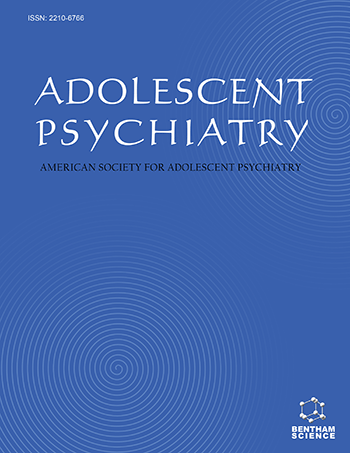Abstract
Background: Cannabis (marijuana) is used by half of all adolescents. Commonly held beliefs that this psychoactive substance is harmful to adolescents coexist with views that cannabis is a harmless natural substance that has beneficial effects. These culturally-ingrained attitudes can have more powerful effects on policy and behavior than experimental evidence. It is important to address the potential imbalance between the influence of cultural attitudes and objective data especially during this period when official sanction of cannabis is in transition across the United States.
Methods: This review presents the scientific literature on neuropsychological functioning in adolescents who use cannabis. These experimental data are organized along the constructs of the cognitive systems domain delineated by the Research Domain Criteria (RDoC) of NIMH. Review of data on social and emotional functioning in cannabis-using adolescents is not a focus of this article.
Results: Adolescents who use cannabis regularly and heavily have impairments in a number of areas of cognition that include attention, declarative memory, and cognitive control. Some impairments may be dose dependent, worse the younger the age of initiation, and persistent in abstinence. The ways in which gaps in this literature hinder the interpretation and broad application of the findings are described.
Conclusions: There are sufficient research data to raise concerns that regular cannabis use is detrimental to mental functioning of adolescents. The literature suggests that because the adolescent brain is developing, it is more sensitive to any adverse effects of cannabis. Still, further research is needed to better understand cannabis and the brain, specifically accounting for neurocognitive functioning before initiation of cannabis, different degrees of use, and the long-term consequences of use and abstinence.
Keywords: Adolescence, adolescent, teen, cannabis, marijuana, development, brain, cognition, executive functions, research domain criteria (RDoC).
Adolescent Psychiatry
Title:Cannabis and Cognitive Systems in Adolescents
Volume: 3 Issue: 2
Author(s): Kristen Randolph, Paris Turull, Amy Margolis and Gregory Tau
Affiliation:
Keywords: Adolescence, adolescent, teen, cannabis, marijuana, development, brain, cognition, executive functions, research domain criteria (RDoC).
Abstract: Background: Cannabis (marijuana) is used by half of all adolescents. Commonly held beliefs that this psychoactive substance is harmful to adolescents coexist with views that cannabis is a harmless natural substance that has beneficial effects. These culturally-ingrained attitudes can have more powerful effects on policy and behavior than experimental evidence. It is important to address the potential imbalance between the influence of cultural attitudes and objective data especially during this period when official sanction of cannabis is in transition across the United States.
Methods: This review presents the scientific literature on neuropsychological functioning in adolescents who use cannabis. These experimental data are organized along the constructs of the cognitive systems domain delineated by the Research Domain Criteria (RDoC) of NIMH. Review of data on social and emotional functioning in cannabis-using adolescents is not a focus of this article.
Results: Adolescents who use cannabis regularly and heavily have impairments in a number of areas of cognition that include attention, declarative memory, and cognitive control. Some impairments may be dose dependent, worse the younger the age of initiation, and persistent in abstinence. The ways in which gaps in this literature hinder the interpretation and broad application of the findings are described.
Conclusions: There are sufficient research data to raise concerns that regular cannabis use is detrimental to mental functioning of adolescents. The literature suggests that because the adolescent brain is developing, it is more sensitive to any adverse effects of cannabis. Still, further research is needed to better understand cannabis and the brain, specifically accounting for neurocognitive functioning before initiation of cannabis, different degrees of use, and the long-term consequences of use and abstinence.
Export Options
About this article
Cite this article as:
Randolph Kristen, Turull Paris, Margolis Amy and Tau Gregory, Cannabis and Cognitive Systems in Adolescents, Adolescent Psychiatry 2013; 3 (2) . https://dx.doi.org/10.2174/2210676611303020004
| DOI https://dx.doi.org/10.2174/2210676611303020004 |
Print ISSN 2210-6766 |
| Publisher Name Bentham Science Publisher |
Online ISSN 2210-6774 |
 16
16
- Author Guidelines
- Graphical Abstracts
- Fabricating and Stating False Information
- Research Misconduct
- Post Publication Discussions and Corrections
- Publishing Ethics and Rectitude
- Increase Visibility of Your Article
- Archiving Policies
- Peer Review Workflow
- Order Your Article Before Print
- Promote Your Article
- Manuscript Transfer Facility
- Editorial Policies
- Allegations from Whistleblowers
Related Articles
-
Non-Pharmacological Treatments for ADHD in Youth
Adolescent Psychiatry Research Review: Childhood Maltreatment and Executive Functioning During Adolescence
Adolescent Psychiatry Narcolepsy in Adolescents: A Review and Three Case Reports
Adolescent Psychiatry Difficulty with Uncertainty: How It Presents in Eating Disorders and What We Can Do About it
Adolescent Psychiatry Mind-Body Practices and the Adolescent Brain: Clinical Neuroimaging Studies
Adolescent Psychiatry Pharmacologic Treatments in “Prodromal Psychosis:” Making Clinical Decisions in the Absence of a Consensus
Adolescent Psychiatry Proceedings of the Regional Conference of the International Society for Adolescent Psychiatry and Psychology (ISAPP), a Joint Conference with 18<sup>th</sup> National Symposium of Adolescent Mental Health, Ankara, Turkey, November 21-24, 2013<sup>1</sup>
Adolescent Psychiatry

























